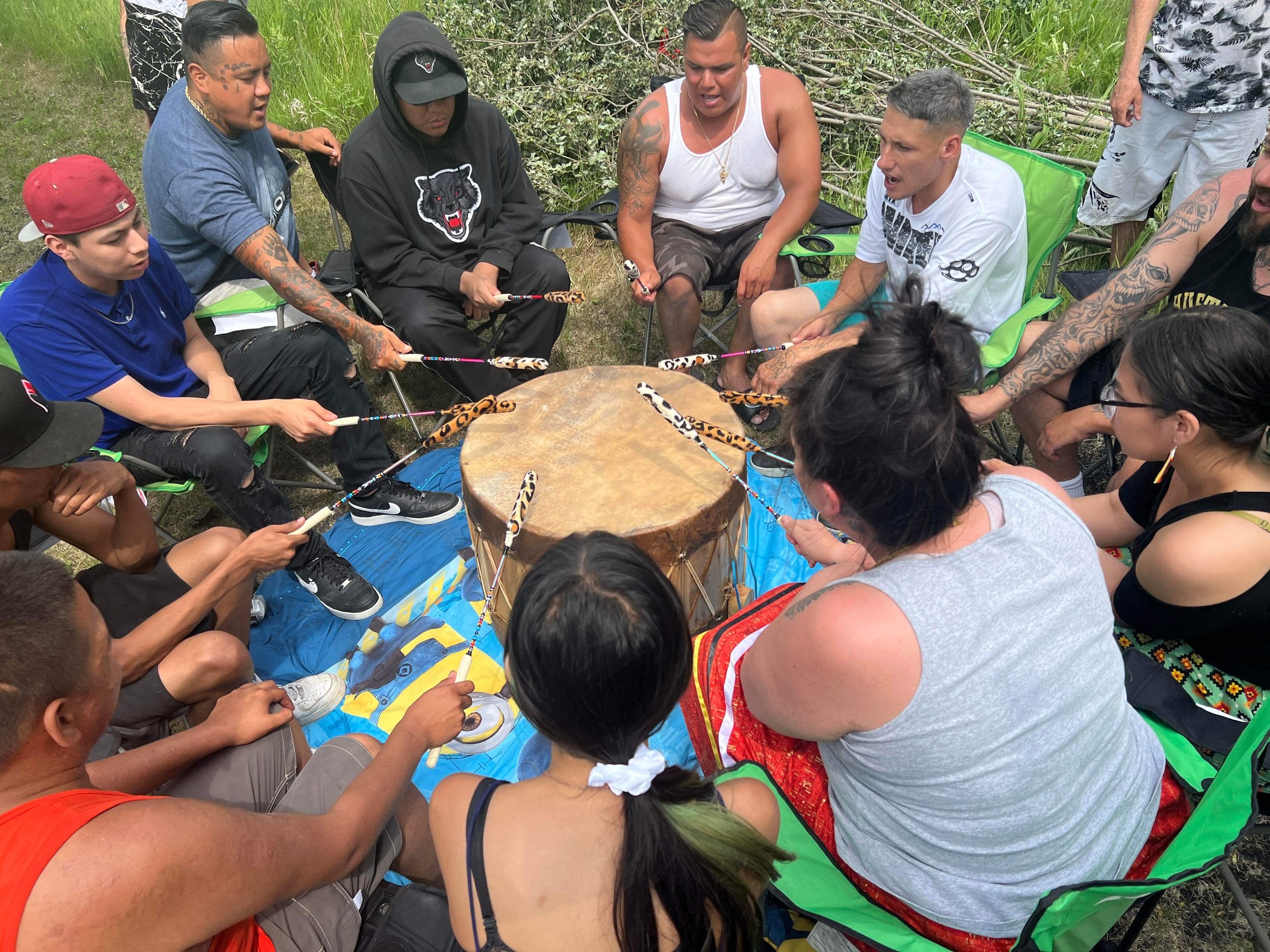
Culture is at the heart of what we do
Reclaiming Culture, Spirit & Stories
Our aim is to support our youth in reclaiming their culture. Through meaningful land based activities, ceremony, life skills teachings, employment and training experiences, Inaadiziwin youth have the opportunity to take part in healing and gaining skills for sustained success.
Youth are offered a daily smudge in the home and drum groups and sweat lodges are held regularly.
Youth are encouraged to attend ceremony such as sweat lodge, pipe ceremonies, full moon ceremonies and Sundance.
Youth are encouraged to participate in traditional activities such as medicine picking, and collecting wood and grandfathers/grandmothers for ceremony, as well as traditional cooking and other activities such as beading and crafts.
Youth have regular access to elders and knowledge keepers in the community.


“The most important part of cultural identity development is ensuring the opportunities for cultural development exist within a community or service structure."”
— Simard & Blight
Reconnecting Youth with Culture
Hundreds of years of colonization and genocidal practices, including the residential school system, 60s scoop, and the current child welfare system have resulted in significant issues within our Indigenous communities, including loss of culture. First Nations, Metis, and Inuit Children are vastly overrepresented in Manitoba’s child welfare system, making up approximately 90% of total children in care. Sixty percent of these children and youth are permanent wards, whereby the state acts as the permanent guardian with the responsibility of ensuring these youth can transition successfully into adulthood. Studies have shown that youth raised in the child welfare system face higher levels of homelessness, unemployment, poverty, addiction and incarceration, unplanned pregnancy, attachment issues, instability and association with negative peers (Government of Manitoba, 2018). Indigenous peoples, including scholars, social workers, helpers, and Elders have continuously emphasized the need for holistic, culturally-based, trauma-informed services for Indigenous children.


